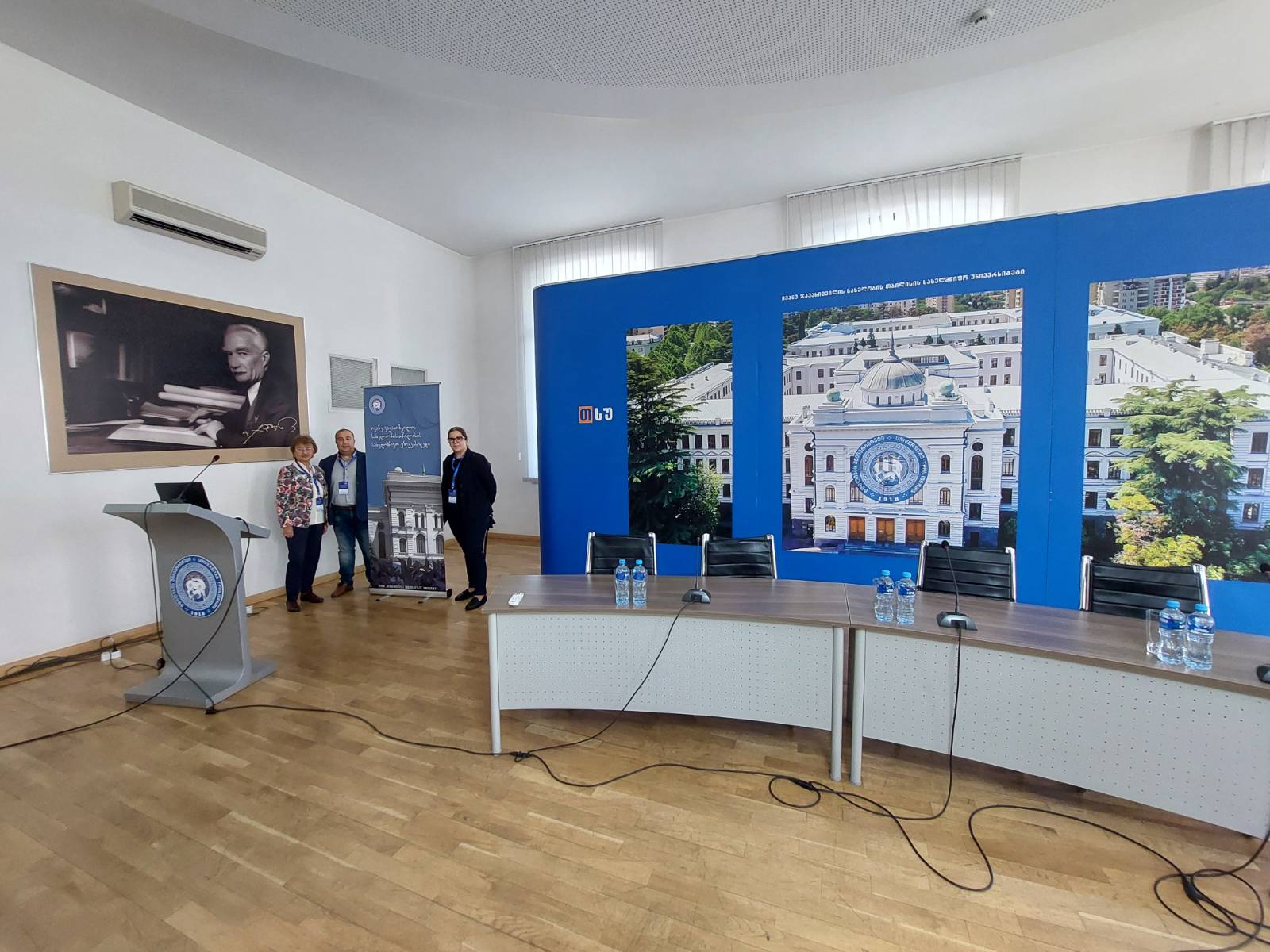Prof. Dr. Tsvetan Iliev

The 8th International Staff Week was held at Ivane Javakhishvili Tbilisi State University (TSU) in Georgia. The university was founded in 1918 and is one of the oldest higher education institutions in Georgia. Since its establishment, the university has adopted European educational practices by attracting faculty members from Germany and France.
Today, more than 25,000 students are enrolled at TSU. The university has a well-developed material and technological infrastructure, encompassing 22 buildings. The educational and research process is carried out by 1,583 faculty members, supported by 1,701 external lecturers, who are specialists in various professional fields.

The university has 7 faculties, which offer a total of 208 educational programs (bachelor’s, master’s, and doctoral), including 26 programs taught in foreign languages. Among them, 10 programs are internationally accredited, and 5 offer double degrees in cooperation with partner universities.
As part of the Erasmus Week program, the deans of the various faculties met with participants and presented the educational and training opportunities available to students in their respective disciplines. A number of good practices and ideas for future cooperation were shared. Of particular interest to us was the presentation by the Faculty of Economics and Business.
In alignment with one of the main goals of the Erasmus+ program — intercultural exchange — various initiatives were organized during Erasmus Week. These included exploring Georgia’s cultural heritage, local architecture, historical monuments, and natural landmarks. The group visited the National Museum of Georgia, and highlights of the old town of Tbilisi were presented from a historical perspective.
We also experienced the blend of Eastern and Western cultural influences that shape Georgia’s unique identity. We were especially impressed by the Georgian music and dance traditions, showcased at the Tbilisi State Conservatoire. For the event participants, traditional Georgian dance performances were specially organized, accompanied by the tasting of local cuisine. One of the most notable traditions that garnered interest was Georgian winemaking, a craft that has brought international recognition to the country.
Participants from different countries also presented their universities and shared insights into the traditions of their cities and nations.
Events like this are highly valuable for participants, as they provide opportunities to exchange educational and training practices, develop joint initiatives, and build bridges for cultural exchange, while also fostering professional and personal connections.

